Your sickness may not qualify as a critical illness and be excluded from coverage, such as a benign tumour:
Benefits may be refused for a variety of reasons at different stages of a long-term disability claim. Here are a few typical explanations for why insurers might refuse or discontinue benefits.
Disability coverage requires you to be unable to work. If you have a benign disease that does not interfere with your work, recovery is possible and easy. Insurance companies will not consider you an ideal candidate for long-term disability support.
Actual misrepresentation or failure to disclose
You shouldn’t omit crucial details, including pre-existing medical issues, while buying a critical illness policy or appearing to represent oneself falsely. Your policy would no longer be valid if an insurance company attempted to revoke (void) a policy due to a substantial misrepresentation or nondisclosure.
Not paying your premiums.
If you did not pay your critical illness premiums during the “grace period,” your coverage might no longer be in effect.
Benefits can be refused for various reasons at different stages of a long-term disability claim.
Resources for Traumatic Brain Injury Victims
McNally Gervan’s personal injury lawyers in Ottawa have been instrumental in assisting countless accident victims and their families with navigating the intricate realms of law, insurance, and rehabilitation.
We are dedicated to ensuring they receive the necessary support and rightful compensation they deserve. In our commitment to helping families coping with traumatic brain injuries, we have compiled a directory of valuable resources. It is important to note that no entities featured in this directory have paid for their listing; our focus is solely on providing helpful information.
| Anne Johnston Health Station | The Anne Johnston Health Station (AJHS) is a non-profit community health center dedicated to enhancing the health and well-being of individuals across various age groups, including youth, seniors, and people with physical disabilities through a diverse array of programs and services. |
| Anthony Aquan-Assee | Anthony, a renowned motivational speaker, accomplished author, and former elementary school teacher, faced a life-altering event in 1997 when a devastating motorcycle accident left him in a coma and declared ‘brain dead’ due to a severe Traumatic Brain Injury. Against all odds, Anthony defied expectations and emerged from the depths of adversity to become an award-winning author, inspiring others with his remarkable story of resilience and triumph. |
| Brain Injury Association of Canada | Committed to making a positive difference in the lives of Canadians affected by acquired brain injury, they are dedicated to both enhancing the quality of life for individuals and promoting preventive measures. |
| Brain Injury Association of North Bay | The Brain Injury Association of North Bay and Area is dedicated to offering a helping hand to individuals living with brain injuries, providing them with valuable support, essential information, and practical assistance. |
| Brain Injury Association of the Ottawa Valley | This non-profit organization is dedicated to facilitating the reconnection of acquired brain injury survivors with their environment. By offering a range of supportive services and programs, they empower individuals to rebuild their lives, regain independence, and establish meaningful connections within their community. |
| Brain Injury Association of Quinte District | This not-for-profit organization is committed to supporting individuals with Acquired Brain Injury, as well as their families and communities. Through their extensive educational information and outreach services, they actively promote awareness and understanding of Acquired Brain Injury. By empowering individuals with knowledge and providing essential resources, they work towards creating a more inclusive and compassionate society for those impacted by Acquired Brain Injury. |
| Brain Injury Association Sudbury & District | Serving the Greater City of Sudbury, the Brain Injury Association Sudbury & District is dedicated to providing comprehensive support services. From monthly support groups and survivor social events to a helmet awareness program and annual golf tournament, they offer a wide range of programs and activities. Additionally, they provide resources through their resource centre, facilitate a peer mentoring program, and organize an annual provincial conference. |
| Brain Injury Services of Northern Ontario | Their objective is to make a positive impact on the lives of those affected by providing specialized assistance and resources. Recognizing the significance of personalized care, their focus is on empowering individuals to regain their independence and improve their overall well-being. With a strong emphasis on community integration and support, the organization works diligently to ensure that individuals affected by Acquired Brain Injury receive the necessary help to thrive and lead fulfilling lives. |
| Brainline | BrainLine, a comprehensive multimedia initiative, is dedicated to providing valuable information and resources on the prevention, treatment, and management of Traumatic Brain Injury (TBI). With a nationwide reach, BrainLine aims to empower individuals, caregivers, and healthcare professionals with the knowledge they need to navigate the challenges associated with TBI. |
| Camp Dawn | Camp Dawn is a camping experience for adults with acquired brain injuries |
| Centre for Disease Control – Traumatic Brain Injury | CDC’s research and programs work to prevent TBI and help people better recognize, respond, and recover if a TBI occurs. |
| Community Head Injury Resource Services | CHIRS, formerly known as Ashby House, started in 1978 as the first community-based brain injury rehabilitation program in North America. |
| Community Solutions | Community Solutions specializes in assisting individuals with Acquired Brain Injury to re-establish their lives in their own homes and communities. |
| COTA Health | COTA Health is an accredited provider of mental health and community support services. Our programs provide support to adults living with serious mental illness, geriatric mental health conditions, acquired brain injury, developmental disabilities and dual diagnosis. |
| Dale Brain Injury Services | Dale Brain Injury Services provides a continuum of high quality, client-centered services to persons affected by an acquired brain injury. |
| Designable Environments | A unique organization of consultants who assist our clients in the creation of accessible environments through the practical application of universal design principles. |
| Drivelab Inc. | DriveLab provides graded exposure to driving for people who have physical, cognitive, emotional or developmental disabilities, as well as to seniors who require assistance in maintaining their driver status. |
| Essentially You | At Essentially You, social work theories and principles are the foundation to their approach when supporting individuals and families. They provide person centered care respecting and valuing the needs, wishes and voice of clients. |
| Family Caregiver Alliance | FCA is a public voice for caregivers. Programs include |
| Four Counties Brain Injury Association | From its origins in 1988, the Association has evolved into a dynamic and responsive agency that provides a range of support services to individuals living with an Acquired Brain Injury and have complex and diverse needs. |
| Hamilton Brain Injury Association | To ensure the quality of life for survivors of brain injury, and their families, through education, support and advocacy. |
| Head Injuries Happen to Families | Article by Judith Falconer, Ph.D. |
| Head Injury Association of Fort Erie and District | Advocates on behalf of individuals who have acquired brain injury and their families, promotes prevention and public awareness of the needs of this unique population. |
| Health in Motion Rehabilitation | Toronto-based rehabilitation clinic that provides specialized treatments for children with cerebral palsy, developmental delay, acquired brain injury, and pediatric stroke |
| HILL Program(Hamilton) | HILL Program is a transitional living program for individuals with an acquired brain injury. Rehabilitation is provided as residential, outreach and/or day treatment. |
| Living with Brain Injury: Post-Rehabilitation Recovery | Article by Judith Falconer, Ph.D. |
| Mayo Clinic: Traumatic Brain Injury | Symptoms, causes, risks, tests, diagnosis, treatment, prevention, support |
| MukiBaum Treatment Centres | For children and adults with complex disabilities. |
| NeuroConnect | NeuroConnect provides information, resources, and support to people living with acquired brain injury and their families as well as brings awareness of brain injury to the public. |
| Neurologic Rehabilitation Institute of Ontario | The rehabilitation programs of NRIO are developed to assist persons with brain injuries and other neurologic impairments achieve success by increasing their level of independence. |
| New Beginnings | The New Beginnings Club enhances the quality of life for survivors of acquired brain injury (ABI) including stroke, and their family members. |
| Nursing & Homemakers Inc. | Delivering innovative, safe client focused culturally sensitive Nursing and Personal Care in a cost effective and efficient manner. |
| Ontario Brain Injury Association | The OBIA mission is to enhance the lives of Ontarians living with the effects of acquired brain injury (ABI) through education, awareness and support. |
| Ontario Neurotrauma Foundation | Neurotrauma research and innovation in action: changing lives, changing attitudes and changing our public systems in making a stronger Ontario for all our citizens. |
| Recreational Respite | To maximize the quality of life for any individual and their families, who are coping with a cognitive (memory or acquired) impairment, physical challenge or developmental disability and provide inclusive and successful environments. |
| Safe Kids Canada | Safe Kids Canada’s mission is to lead and inspire a culture of safety across the country in order to reduce unintentional injuries, the leading cause of death among children and youth in Canada. |
| Seizure & Brain Injury Centre | Since 1988, the Seizure & Brain Injury Centre has been serving the Cochrane-Timiskaming area, with assistance and resources for those with both epilepsy and acquired brain injuries. |
| Stress Management Following Brain Injury | Article by Judith A. Falconer, Ph.D. |
| ThinkFirst Canada | ThinkFirst is a national non-profit organization dedicated to the prevention of brain and spinal cord injuries. |
| Toronto ABI Network | Toronto ABI Network connects people with Acquired Brain Injury to the services they need. |
| Traumatic Brain Injury Survival Guide | By Dr. Glen Johnson, Clinical Neuropsychologist |
| While you are waiting… | A page directed to those who are waiting while someone is in a coma due to brain injury |
Recent Articles
Latest articles
Traumatic brain injuries (TBIs) can drastically change the lives of both victims and their families. Whether it’s a mild traumatic brain injury like a concussion [...]
In 2013, a high school rugby player from Ottawa named Rowan Stringer passed away at just 17. After experiencing her first concussion, she continued playing [...]
New Guidelines for Concussion/Mild Traumatic Brian Injury and Persistent Symptoms were recently released by the Ontario Neurotrauma Foundation. The lead author is Dr. Shawn Marshall, [...]
Legal assistance with Lawyers in Ottawa
If you have a question or need assistance, our team of personal injury lawyers is here to help. We know every personal injury case is unique and we work hard to make sure our clients are fairly compensated.
If you are unable to travel to our downtown Ottawa office, one of our lawyers or paralegals can come to meet you at your home or some other convenient location. During the free consultation, we will get to know you and to understand the nature of your injuries, as well as the impact the accident is having on you and your family. Contact us for a free consultation with a lawyer with complete knowledge about car accident claims. We know it’s personal.
OUR ACHIEVEMENTS
Car Accidents
$2.2 Million







Follow Us